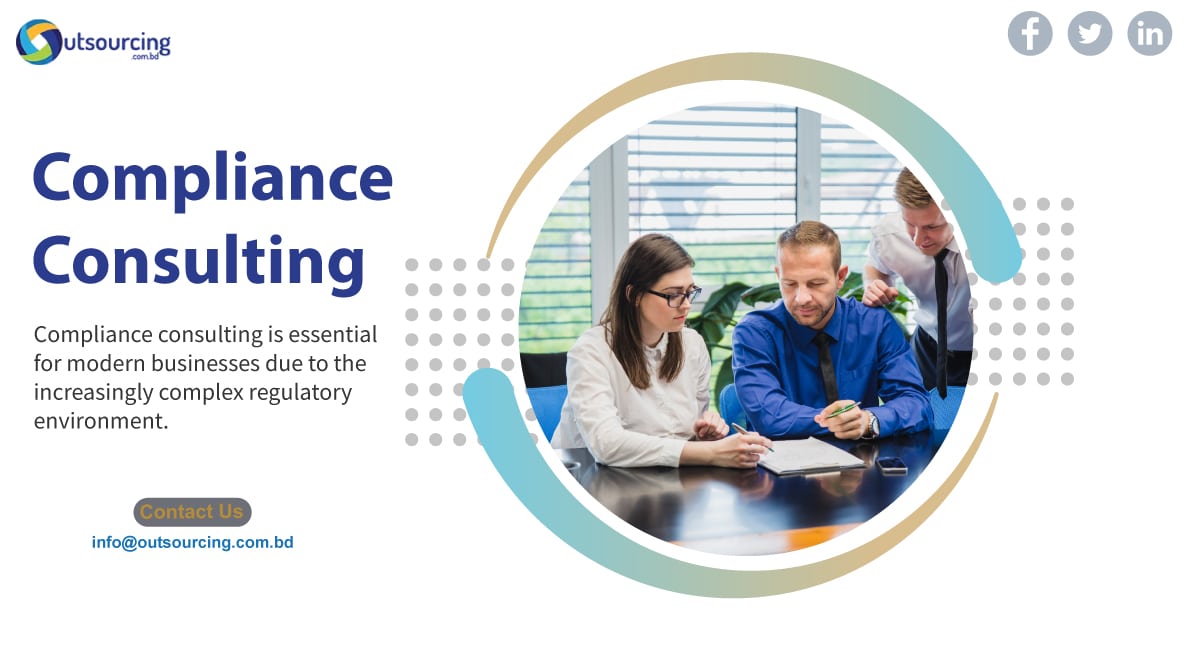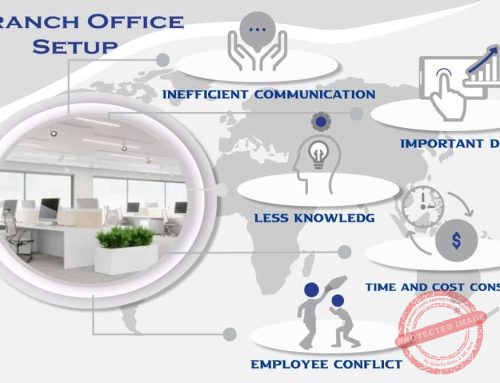Compliance consulting is essential for modern businesses due to the increasingly complex regulatory environment. As governments and international bodies introduce more regulations, particularly in areas like data protection, environmental standards, and financial reporting.
Also, businesses face the challenge of staying compliant to avoid legal penalties, financial losses, and reputational damage. Compliance consultants provide expert guidance to navigate these complexities, helping businesses understand and adhere to relevant laws and regulations.
They also assist in developing internal policies and procedures that align with compliance requirements, thus ensuring operational integrity and ethical practices. Moreover, consultants can identify potential risks and vulnerabilities, offering solutions to mitigate them.
Overall, compliance consulting plays a vital role in helping businesses operate legally, ethically, and successfully in a dynamic regulatory environment.
How Compliance Consulting Can Help in Crisis Management?
Compliance consulting plays a crucial role in crisis management by helping businesses navigate through regulatory and ethical challenges during critical situations.
When a crisis strikes, be it a regulatory breach, legal issue, or ethical scandal, compliance consultants provide expert guidance to ensure that the response is in line with legal requirements and industry standards.
They help assess the scope and impact of the crisis, identifying areas where the business may be at risk of non-compliance. Consultants also assist in developing and implementing corrective actions and strategies to mitigate any legal or regulatory repercussions.
Moreover, they play a key role in communicating with regulatory bodies and stakeholders, ensuring transparency and adherence to compliance obligations. By providing a clear framework for action and helping to maintain regulatory integrity, compliance consultants can significantly reduce the potential damage of a crisis.
Ethical Compliance Consulting is Integral to Corporate Responsibility
- Upholding Legal Standards: Ethical compliance consulting ensures adherence to laws and regulations, preventing legal violations and potential penalties.
- Maintaining Reputation and Trust: It plays a critical role in building and maintaining public trust and a positive corporate reputation, which are essential for long-term success.
- Risk Management: Ethical compliance helps identify and mitigate risks associated with unethical practices, safeguarding the company from potential crises.
- Promoting Transparency: It encourages transparency in operations, fostering a culture of openness and accountability.
- Employee Engagement and Morale: Ethical practices contribute to a positive work environment, increasing employee satisfaction and retention.
- Customer Confidence: Customers are increasingly valuing ethics in their purchasing decisions; ethical compliance can boost customer loyalty and brand value.
- Investor Attraction: Ethical compliance is a key factor for investors who are increasingly focusing on corporate social responsibility in their investment decisions.
Financial Compliance Consulting: Mitigating Risks in the Finance Sector
Financial compliance consulting plays a pivotal role in mitigating risks in the finance sector, a field that’s heavily regulated and constantly evolving. Compliance consultants specialize in understanding complex financial regulations and help firms navigate these to avoid legal penalties and financial losses.
They provide expert advice on adhering to laws and regulations related to anti-money laundering (AML), Know-your-customer (KYC) protocols, and other financial reporting standards. By analyzing a firm’s financial practices and policies, these consultants identify areas of potential non-compliance and suggest corrective measures.
In an era where financial regulations are becoming more stringent and the penalties for non-compliance more severe, financial compliance consulting is crucial for ensuring that financial institutions operate ethically, legally, and efficiently, thereby safeguarding their reputation and financial stability.
Use Compliance Consulting to Enhance Your Business Reputation
Utilizing compliance consulting can significantly enhance a business’s reputation by demonstrating a commitment to legal and ethical standards. Compliance consultants help businesses adhere to relevant laws, regulations, and industry standards, which is crucial in building trust with customers, partners, and regulatory bodies.
By ensuring that a business operates within legal parameters, compliance consulting reduces the risk of legal issues and scandals that can damage a company’s reputation. Additionally, these consultants often assist in developing and implementing corporate governance and ethical practices, which further strengthens a company’s image as responsible and trustworthy.
In today’s market, where consumers and investors are increasingly concerned with corporate responsibility, having a strong compliance framework signals reliability and integrity. This not only attracts customers and investors but also fosters a positive work environment, enhancing employee morale and loyalty.
Future of Compliance Consulting: Trends Predictions
The future of compliance consulting is shaped by several emerging trends and predictions, reflecting the evolving nature of business regulations and technology.
Increased Focus on Technology: The future of compliance consulting is expected to heavily integrate technological solutions like AI and machine learning for more efficient compliance monitoring and data analysis.
Growing Importance of Data Privacy: With the rise of digital data, compliance consulting will increasingly address data protection regulations, such as GDPR, and help businesses adapt to evolving privacy laws.
Expansion of Regulatory Landscape: An increase in both domestic and international regulations is expected, requiring businesses to seek expertise in navigating this complex landscape.
Enhanced Role in Risk Management: Compliance consulting will play a more integral role in overall risk management strategies, focusing on identifying and mitigating potential compliance risks.
Sustainability and ESG Compliance: There will be a greater emphasis on environmental, social, and governance (ESG) compliance, reflecting the growing trend of sustainable and socially responsible business practices.
Cybersecurity Focus: As cyber threats continue to evolve, compliance consulting will increasingly address cybersecurity regulations and help businesses protect sensitive data and systems.
Conclusion
Compliance consulting is an essential service for businesses navigating the complex and ever-changing landscape of regulations and standards. It helps organizations maintain legal and ethical integrity, avoid costly penalties, and enhance their reputation.
With advancements in technology, increasing focus on data privacy and cybersecurity, and a growing emphasis on environmental, social, and governance (ESG) factors, the role of compliance consultants is becoming more critical.
As regulations continue to evolve, the importance of compliance consulting in guiding and safeguarding businesses through this challenging terrain is expected to increase, solidifying its role as a cornerstone in modern business strategy.
FAQs
How can compliance consulting protect a business?
It protects businesses by identifying and mitigating risks associated with non-compliance, such as fines, legal action, or damage to reputation. Consultants also help implement best practices that prevent compliance issues.
Can small businesses benefit from compliance consulting?
Yes, small businesses can benefit significantly. While they may have fewer resources to dedicate to compliance, they are still subject to many of the same laws and regulations as larger companies. Consultants can provide tailored solutions that fit their specific needs.
What is the role of technology in compliance consulting?
Technology plays a crucial role in modern compliance consulting. Tools like compliance management software, AI, and data analytics help in monitoring compliance, automating processes, and providing insightful data analysis.





